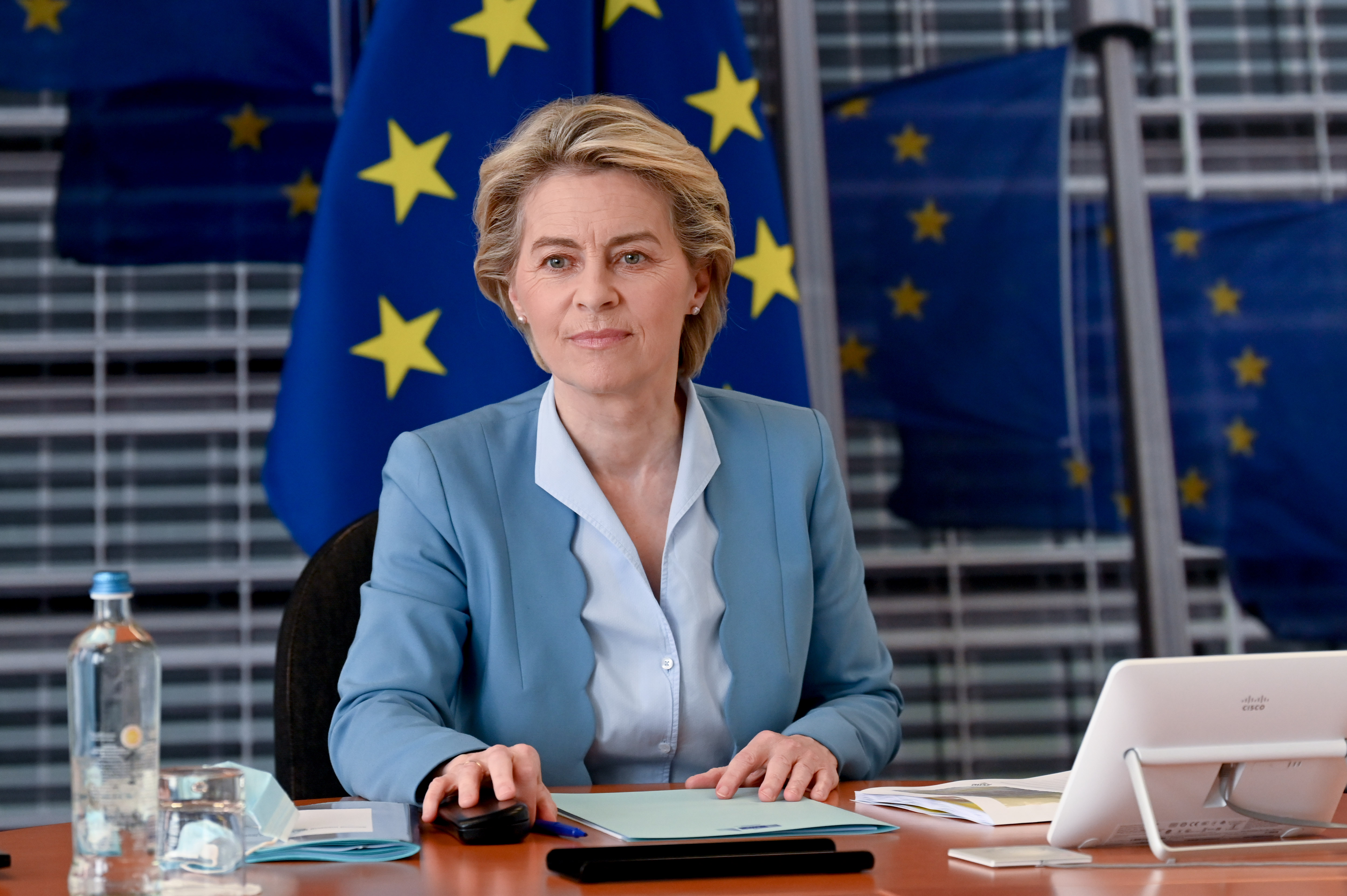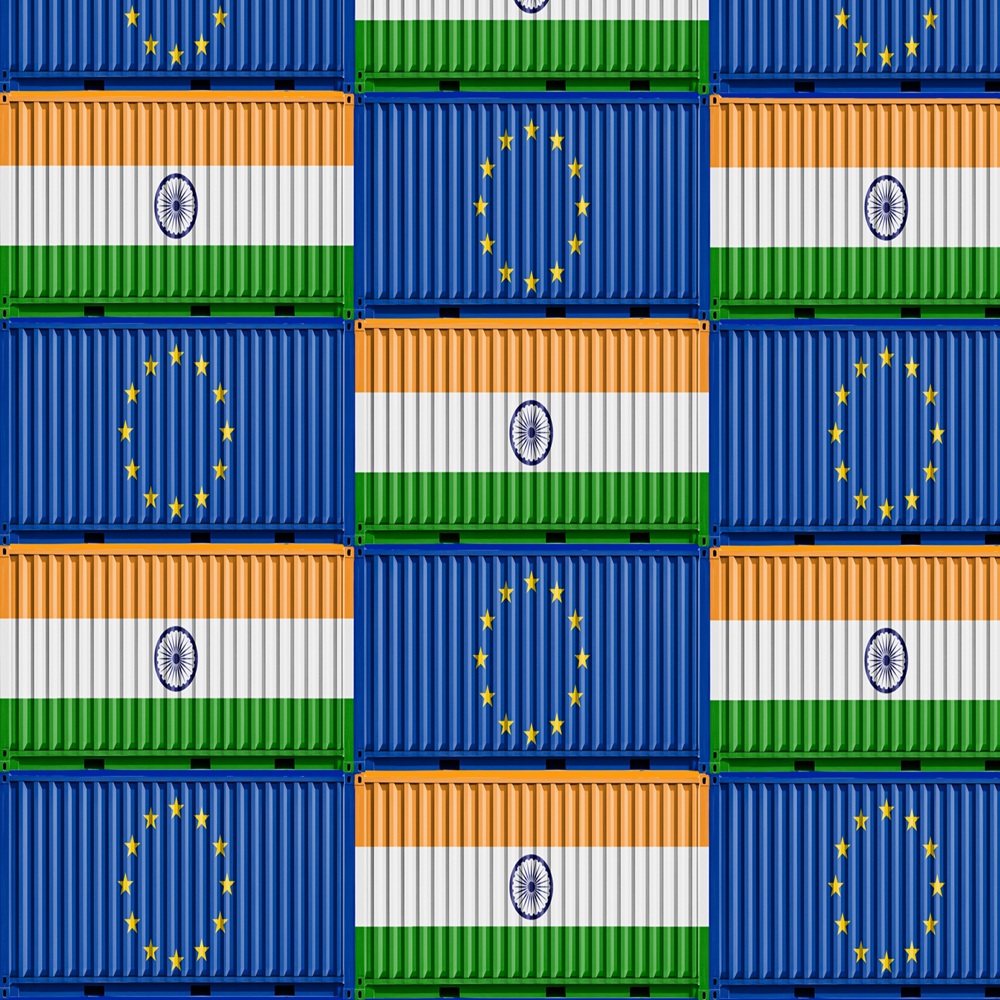
Keynote speech by President von der Leyen at the Philippines Business Forum
by Ursula Von der Leyen
Ladies and Gentlemen, It is very special for me to be in Manila and once again to experience first-hand the famous Filipino hospitality. Each time I visit, I am struck by the warmth, intelligence, and honesty of the people I meet. You make everyone feel at home, even 10,000 kilometres from home. While visiting your beautiful country, I have also learnt a proverb of yours. It says: ‘Be like a rice stalk: the more grain it bears, the lower it bows'. I believe a country's proverbs can tell a lot about its people. And this proverb certainly describes the people of the Philippines: always humble, especially in success. Right now, the Philippines is booming. Thanks to your resilience, dynamism, and work ethic, your economy grew by close to 8% last year. You are among the fastest growing emerging markets. Your Development Plan, as outlined by President Marcos, is prioritising good governance, cutting red tape, and speeding up permitting for strategic investments, for example in renewables and semiconductors. Not only does this make the Philippines an even more attractive trade and investment destination for European firms, but Filipino companies are also beginning to thrive in the European market. IMI, for example, has expanded its micro-electronics business to become the 14th largest manufacturing solutions provider in Europe. Or consider the Philippine port-handling giant, ICTSI. It operates a container terminal in the Adriatic Sea, and recently signed another 30-year lease to operate a port in the Baltic. It is worth mentioning, as well, that there are around 50,000 Filipino sailors manning ships with European flags. You make trade happen. And you never boast about any of this. So allow me to begin by thanking all the Filipinos who are contributing every day to the friendship and economic partnership between Europe and the Philippines. These examples show that the ties between our countries are already strong. But the time has come to lift our partnership to the next level. Because we have much more in common than our geographic distance would suggest. I see three main fields where we share interests and values, and we are just made to work together. First of all, international security. Both the Philippines and Europe believe in a global order that is based on the principles of the UN Charter, such as the respect for every nation's sovereignty and territorial integrity. And this order is now threatened, in both our regions. Second, economic transformation. We are both modernising our economies, with a focus on the green and digital transitions. And in parallel, we are de-risking our trade and investment. Europe and the Philippines are natural economic partners more than ever before. And third, on democratic values. Because economic progress can only be coupled with social progress, for all people in our societies. Let me begin with security. The Philippines have helped build the rules-based global order, as a founding member of the United Nations, ASEAN, and the World Trade Organisation. And last year, you stood up to uphold the global order, when Russia sent its tanks into Ukraine. Both the European Union and the Philippines – along with over 140 countries – have clearly condemned Russia's war of aggression against a sovereign, independent member of the United Nations. And we Europeans will continue to support Ukraine and to uphold the UN Charter for as long as it takes. But another permanent member of the UN Security Council – China – has yet to assume fully its responsibility under the UN Charter to uphold the sovereignty and territorial integrity of Ukraine. This is happening against the backdrop of China's more assertive stance in your region. Europe has constantly called on China to respect the sovereign rights of states within their exclusive economic zones. China's show of military force in the South and East China Seas and in the Taiwan Strait directly affects the Philippines and our other partners in the region. But it could also have global repercussions. And any weakening of regional stability in Asia, the fastest-growing region in the world, affects global security, the free flow of trade, and our own interests in the region. So whether we talk about Ukraine or about the South China Sea, our security is connected. That is why the EU has been enhancing its engagement in the Indo-Pacific. We aim to promote a free and open Indo-Pacific, to reinforce respect of international law and address global challenges. With the Philippines, we are deepening our security partnership, particularly on maritime security and on cyber cooperation. And we want to do more. Ladies and Gentlemen, We cannot choose our neighbours, but we can choose who we do business with, and on what terms. This leads me to my second point. We, Europeans, are clear-eyed when it comes to diversifying and de-risking our trade and investment. We made the mistake with Russia, thinking that we could manage our geopolitical differences through business. Before the full-scale invasion of Ukraine, Europe relied heavily on energy imports from Russia. When the Kremlin started the war, Russia tried to blackmail us with cutting its gas supplies. 80% in eight months. This triggered a severe energy crisis, but we withstood. We saved energy, we diversified to like-minded partners, and we invested massively in home-grown renewable energy. Today, we are stronger than before and more independent. And we have learnt our lesson. We will not make the same mistake again. When it comes to the key inputs needed for our competitiveness, such as critical raw materials, we should never rely on one single supplier. This is the core of our de-risking strategy. And I know that this is not only Europe's strategy. The Philippines, for instance, exports 90% of its nickel ore to China, instead of processing it inside the country to create more jobs and added value. But this can change. That is also why I am here in Manila today. The Philippines and the EU have a major opportunity to step up our partnership on both trade and investments. Let me focus on investments, first. Europe has just launched a plan for boosting infrastructure investments in strategic sectors in partner countries. It is called Global Gateway, and for ASEAN, we have put forward an investment package worth EUR 10 billion in public funds until 2027. But it is not only about the money. It is also about the method. European investments come with the highest environmental and labour standards, as well as with a strong focus on creating local value chains. Take the raw materials examples. Unlike other foreign investors, we do not want to invest only in the extraction of raw materials. We can also support you in building local capacity for processing, powered by new clean energy infrastructure. Global Gateway seeks to create good jobs right here because this also strengthens our supply lines. Global Gateway seeks to promote investments that move Filipino sectors up the value-chain. And we look forward to working with the Asia Development Bank, based right here in Manila. You are experts in the region, and we share similar priorities. So it is only natural that we work hand-in-hand. Moreover, the Philippines are a natural leader in digital innovation. The Philippine Venture Capital Report of 2023 observed an explosion of new activity in the country's start-up ecosystem. Your e-commerce market value increased by 33% in the last three years alone. The people of the Philippines are five years younger than the global average. So it is no surprise that your economy is so dynamic. The Philippines can become a new digital hub in the region. But as entrepreneurs everywhere, Filipino entrepreneurs need infrastructure investment. This is where Global Gateway can truly make a difference. And we are already working on the ground, or rather, in space. Together with the Philippines Space Agency, we are building the first earth observation system in Southeast Asia. In parallel, Nokia is investing in 5G infrastructure. Why does this matter to Filipino innovators? Because the European Copernicus satellites will be made available for space-based services here in the Philippines, like disaster risk management against typhoons, or satellite navigation, which is fundamental for aviation, drones, and autonomous driving. This is part of a larger digital economy package that we are finalising with the government. We are even exploring a possible extension of the new fibre submarine cable that will connect Europe to Japan via the Arctic. We would create a direct data connection between our regions to de-risk and open up new opportunities for both our economies. New investments could also lead the way for more trade between Europe and the Philippines. The EU is your fourth largest trading partner, accounting for nearly 8% of your trade. This is thanks to our current trade preferences scheme. But there is much untapped potential in our trade relationship. Let me give you an example: A few months ago, I was in South Korea. There I saw the impressive positive impact of the trade deal we have concluded. In a little over a decade, EU trade with Korea has more than doubled. This is what happens when you give people and business the opportunity to work across borders. New doors open for innovation. And the most important: People benefit. So let us make progress. Our trade agreements with Singapore and Vietnam are already delivering. And Europe wants to conclude free trade agreements with other ASEAN countries. I believe, like President Marcos, that the timing and conditions are right for us to solidify our bilateral trade relations. That is why we have taken the decision to relaunch our negotiations for a free trade agreement between the Philippines and the EU. Our teams will begin right away a scoping process to identify what we need to do to overcome any remaining gaps before we can get back to negotiating. This should take no more than a few months. Let us seize this window of opportunity, and make it work. Trade agreements today are about much more than eliminating tariffs and quotas. They are about shared commitments, values, and principles, including on human and labour rights. And this leads me to my last point. Our democracies – all of them – are work in progress. None of them is perfect. But they are all perfectible. Your new government has taken some important steps for human rights here in the Philippines. Each one of our democracies is different. But we all share the same universal values, and the same direction of travel. The path towards better democracies is one that we can and should walk together. Ladies and Gentlemen, The Philippines and the European Union may stand at the opposite sides of the world, but our destinies are linked more than ever before. We see it with geopolitics and climate change. We see it in the connection of our value chains. We have a similar outlook on the Indo-Pacific. And we have strong economic ties. Europe wants to be a trusted partner to the Philippines as it grows into its economic potential. We want to be partners who stand eye to eye. Partners who put people and their values first. Having met so many wonderful people here in the Philippines, who are proud of their country, hardworking, and humble, I am excited for what we can achieve together. I know you are proud of your Bayanihan spirit. And I really hope that we can build the same spirit of community between us, in Europe and the Philippines. Salamat, thank you very much and have a wonderful evening.









